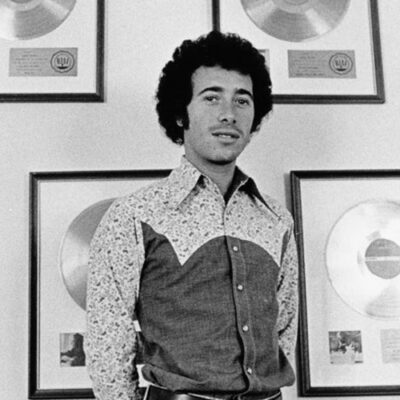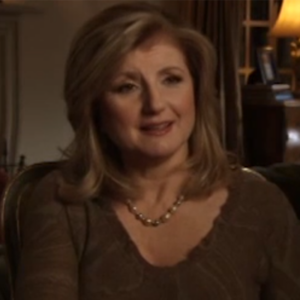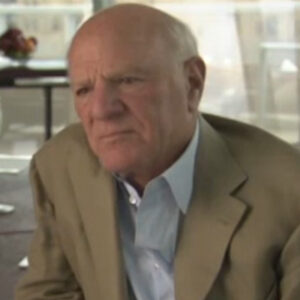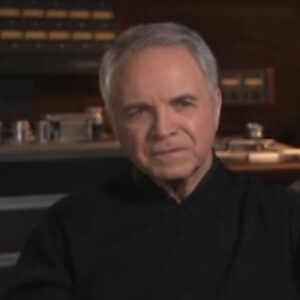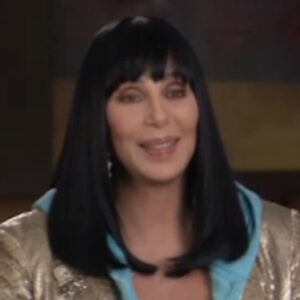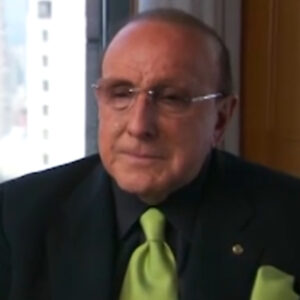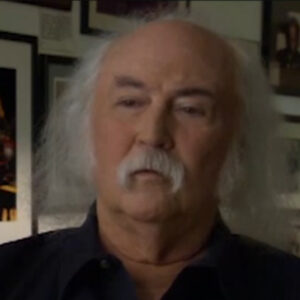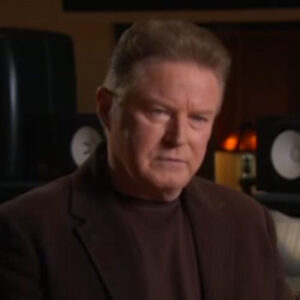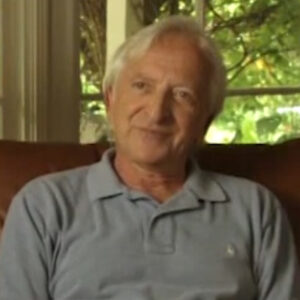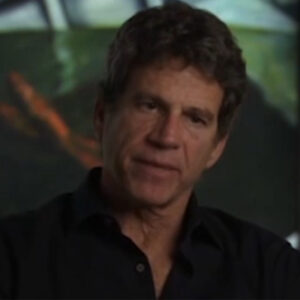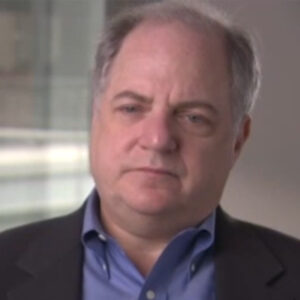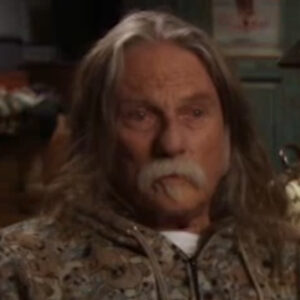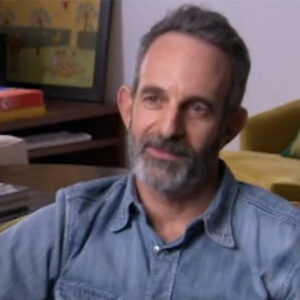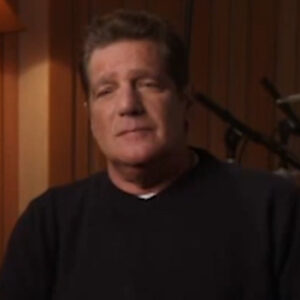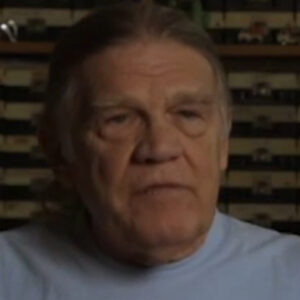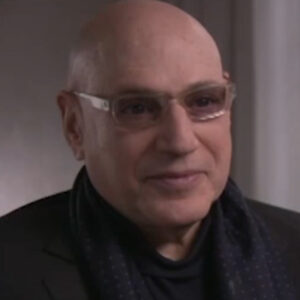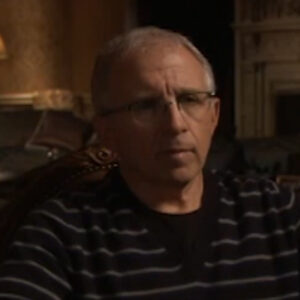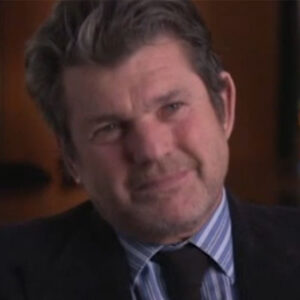Speaker David, I was there.
Speaker David was combination of of, you know, kind of Jerry Lewis, you know, with his foot in a bucket, you know, kind of sort with like without without really social graces, you know? And, you know, Howard, he was like a really masterful plotter, somebody who was really had a great deal of, you know, he had several gay. He was always working several moves ahead of everybody else. And he was able to other people. I’m not a business person. So that’s that’s kind of I mean, he just had this sort of legendary business acumen, you know, and you would. And what would have pressed me always was that he was. You know, they loved music. He was a real fan of all of this music and he would listen to music all the time, he got swept away by it. And. And in terms of. Putting your trust in putting yourself in the hands of somebody to manage you or to you. I mean, it was important that that person understood what you’re doing and really appreciate it. I mean, in that respect, I think he was. I mean, that’s all musicians really have to go on that. They’re not really smart businessmen themselves. I think some musicians might be.
Speaker But I’m not. So the.
Speaker Thing about him is I’ve read some things about, you know, read some books that were written about him or tried to, you know, I always think that the thing that they miss is that he was such a music lover, you know, and that he was. This is what he wanted to be involved in. We wanted to be doing because of that. You know, and the fact that he was ambitious is kind of which which is the main thing I most people scream with is not a surprise to me or any of the people that, you know, signed with him or wanted to work with him. You hope that he was ambitious. You hope that he wanted to get rich and you know, and that he would make you rich and, you know, in the process. And he did, you know, for many people. But, you know, the truth is, I brought a lot of I brought a lot of my friends to to him, and he didn’t want them all. He’s very discerning. Did you think? Oh, well, but my friends, I bought I brought Glenn Fry and John David Seltzer and I brought a great writer named Jimmy Sphere’s.
Speaker He didn’t. He didn’t. Wasn’t really interested in.
Speaker And was.
Speaker Linda, I didn’t bring the team actually today, it’s true, that’s really true. I, I would always say equate it with me with bringing the Eagles, but really I brought them Glenn Fry and John John David, they were due and and, uh. But this is David. He listen to them. I said, well, JD got these songs and he could make an album by himself. He could make a solo album. And he looked at Clinton said, but, you know, you should be in a band. You really need to be in a band. You know, go get a band. So I went out and I put together the Eagles, put the Eagles together and came back to your mind like this. And it was you know, it was great. And, you know, and John David, who’s a great writer, is still a great writer, wrote a lot of songs that the Eagles did. And they did. You know, I got to write some songs for those guys, too. And that was some. And he supported them for a long time while they practice and became the Eagles. They didn’t just go out. He didn’t go go put out. But the Eagles did. He did. He put together this band that had all its potential. And Gaffin was the the have the abiding sensibility and the kind of the kind of nurturing sensibility saying, well, this this could be really good and let’s, you know, and and, you know, paid people’s, you know, alimony or child payments or their dental bills or whatever and kept them, you know, kept them together, really, while they while they really learn to sing the way they sang.
Speaker He did that with a lot of. He did it with you.
Speaker Yeah.
Speaker He he supported me, you know, while I was trying to figure out how to sing and is like, you know, it was clear to me that I needed, you know, I mean, it’s cleared everybody. I think that if they had to develop as a singer, you know, because, you know, and I had been around for a while. So, yeah. But I bet he would like he would like, you know, don’t start living above your means, you know, he’d like start that and. But it wasn’t that much money and it wasn’t for very long really.
Speaker You know, it wasn’t nurture in that sense. He knew he knew that you needed some time. I gather from everything I’ve read that you have enough songs you had before you did your first.
Speaker No, I thought I’d had really I thought had really good songs, but I didn’t think I sang very well. I don’t think I sang well until much later. But at a certain point, I think maybe that there were other people interested, too, you know. But I mean, Dave. Well, David took me around to a lot of different record companies, even what even I promise that I’d been on before. You know, who knew he was holding with you? Take me to see Jack, man, you know, who were and say, you know, sign him, you know? And I really there never take her side. He take me to see Clive Davis at Columbia, took me to see Jac Holzman and Lenta.ru, took me to see Ahmet Ertegun. And, you know, like nobody was really interested.
Speaker And in the end, he decided to start a label, you know, which was I mean, that is a testament to his belief in what he was doing.
Speaker He kept you know, he might have been saying to them, like you like famously said to Ahmet, you know, like, you can make a lot of money and it’s enormous that you make the money, you know, and and and he did. But that was it. Then I think that he said to me, he just said, you know, you deserve to make the record you want to make.
Speaker And when you were making your record, he tell you, you know, if you were talking about some, he didn’t have a lot of patients for the things, whatever, you know, self-criticism you might have. And he’d say, look, you know, figure out, you’ll figure it out. You know, look, if you don’t know, nobody knows. And I know. And there were so there were no and our people in his company, they were ever just just artists that were finding their way.
Speaker Tell us about that Clive Davis audition. A famous story isn’t famous.
Speaker Well, I tell you, because we’ve been reading all about David’s life, but most people read Sammy.
Speaker He’s took me to see Clive Davis, who was the head of CBS Columbia or Columbia Records things and.
Speaker He’s had me start to sing for Clive and an actor during the middle of a song. Clive secretary came in and whispered in Clive Zero. And he looked at me, went and he apologized very sincerely and very profusely, said, I’m I’m sorry. That’s my boss. And I have to take this call. It’s gottliebsen. Please. She wanted to. Davisson I was like, any any like, you know, took the call and David said, pack up.
Speaker Your guitar will leave. I said, David. Hee hee hee. That’s OK. Please pack of. Really?
Speaker I packed up my guitar and we left the room and he left, said to Clive as his eyes like, How could you start? Take a phone? And was like, this whole thing didn’t come from me.
Speaker It came from him. Came from a kind of insistence that that, you know, what I think was kind of maybe just an almost example of David’s, you know, strategy and his opportunism, you know?
Speaker I still didn’t make Clive want to sign me, you know, so he didn’t go right another time. He would later climb. He said, I’m saying for Clive again, this time in David’s house.
Speaker And Clive likes one of my songs. And he says it’s much more intimate because it’s like it’s you know, it’s a living room in someone’s house. I mean, Clive’s wearing a bathing suit. We’re like anything. And he starts to say if he likes this one song of mine. But maybe you should sing it like. And he starts to sing my song back to me. And David goes, Oh, unbelievable. Now, are you going to tell him how to sing a song?
Speaker And he starts doing, you know, you sort of, you know, but.
Speaker I don’t know if that was his. I don’t know. You know, I don’t we couldn’t tell you what the strategy there was.
Speaker You know, what the strategy was for that because but in the end, you know, I think that.
Speaker Look, we all felt that David was one of us. And this is the thing that you would hear about him before I even met. I mean, it’s like this guy Gaffin is like really, you know, he’s really sharp and he can really deal with the industry, but he’s one of us. So really at the point in which at that he decided to make a label and get to do what the artist wanted to do. I think he really he really was. I think that that was his that was his music or his songwriting. It was his contribution to a thing that we all wanted to make happen, you know? And it was he was kind of in the era was in everything that everybody was thinking of because there were a lot of stories, a lot of people who signed to labels that, you know, didn’t know what to do. Didn’t know how to make that, my friends, you know. John David and Glen had been on a record label where the hired the, you know, the best studio players in town. And but they they run it through this sort of session process with a producer. And it’s great session players. And it came out of everything, kind of sounded the same. And it wasn’t. There was no gestation period. There’s no curing period. There’s no period in which people really had a chance to develop their singular voice. And I think David was, you know, had his ear to the ground in that way. He could really tell. You know, it’s not not that he knew exactly when somebody was ready to record, but he knew he was paying attention to what the artist and themselves, the artists were feeling, you know, wonderful.
Speaker You’ve already answered. Did you have the whole story in there?
Speaker I think Crosby is the one who said because David Crosby did tell me about Geffen, but he also told me he would produce my record. But right around the time that that was right before Crosby, Stills and Nash made their album, he used to hang around. Crosby was between bands he was in and then the Byrds. And he was he come over to the place where I was staying with a bunch of songwriters and play his songs for us. He was always moaning about how, you know, like we’re we had our home. We had our careers ahead of us. Nobody knew. You are like, you know, you have a chance to like you have a clean slate. You can invent yourself. But he was David Crosby and had these great songs himself. And I said that right away. When when he joins. Yes. And when they put that together, he was really hard to get a hold of. You know, I remember standing waiting for him to come out of a dressing room at the Hollywood Bowl for about an hour, really with every other obsessive fan they had. You know, it’s like. And then having come here, it’s just like say hi and like. Oh, yeah, well. Oh, that’s right. Well, I’m busy right now. And then that was like it was it was hard to reach. So I just went right to Gaffin and because he told me that this was, you know, somebody that he admired. And then I found that what he told me specifically, this is a guy that can really, you know, and they were involved with Gavin and Joni Mitchell was involved, David Geffen and Laura Nyro.
Speaker And these are these are incredible views of people that were really making exciting work. Is every you know, wasn’t everybody great at the time. But it was really like one whole kind of contingent of really fantastic contributors, you know, to that songwriting and went the ways in which people making acoustic music and, you know.
Speaker You you just you you wanted to find your voice. You tried to find, you know, yourself. But you actually need feedbag any somebody like listening. And I think the process of going around and playing for people was less mysterious because David seemed to be, you know, in close listening, you know, as opposed to somebody had been taken to go meet people and, you know, and from a record company before, you know.
Speaker But so he was sort of half and half. He was sort of like the a mixture of, you know, and he would tee shirts and jeans and he was, you know, and he was socially bully, ungainly. You know, your heart went out because you didn’t really know how to behave. You know, he was not cool. It’s not cool. He was like DeMar and like, you know, like Jerry Lewis with his foot in a bucket level. You know, he’s like he was kind of, you know, but he was genuine, you know, and you couldn’t you couldn’t really you know.
Speaker You think he knew he gay.
Speaker You know, I think that he was. He was in a way, he was anguished. You know, I think through all kinds of things about David that were, you know. Yeah, no, he didn’t think he was cool. Knew he wasn’t cool. He was. Do I think he spent many years championing artists who he knew to be, like, hugely admired so much. You wrote a story about him and that you got a job as an usher and on Broadway because he loved the songs and imagined there’s this guy who’s like the future, David Geffen, leading people to see seat and getting lost in the in the music, you know, and staying in the back of the theater, like just, you know, singing along with his Broadway songs.
Speaker It’s it’s kind of touching. You know, it’s always like that that that David and he would, you know, David, try to convince me to be in a band, too, because while this while I was trying to figure out how to sing and my best friend, Ned Doheny and I played together sometime, it didn’t is like really great guitar player, very handsome, very charming and funny guy. And he just I was a natural, put together a band, you know, and then and I thought, I don’t know. I you know, I just really want to make my own record. Really. Trust me, you got to make records and write it. On the eve of us setting out to make that record, Ned got involved in a primal scream therapy and called me about say it’s going. He’s going on a trip. And, you know, when he’d be back, I thought initially I thought, yes, I can make my own record. But, you know, and he was back after a while, you know. That was, you know, if you remember author Janov and Primal Scream.
Speaker Anyway, we saw late last night you saw quite he works at Nobu and saw a net. I really stay with Gary Burton every day.
Speaker Oh, fantastic. It was like we could just get old David. David. And then we go to this restaurant the next time.
Speaker Yeah, well, let’s say my son then was probably at Gary’s at a party from Gary, and that’s great. That’s great company right there. Can soil yourself. Laughing This is very funny.
Speaker People tell us a little bit more about asylum. What was besides creating this, listening to the artist and what they wanted to do and not having cookie cutter stuff? What else was different about it?
Speaker Just a little. It was little. It was personal. It was personal. You knew everybody working. And it wasn’t a big record company like you knew the two or three secretaries that worked there. And David has sort of.
Speaker And you could wander in and out of his office. I mean, one time he wondered and I sat down on a chair and I heard him. He didn’t realize I was sitting there. And he said, I’d like at the other end of the room screaming into the phone, telling somebody that if they didn’t book me, they’d never see Neil Young again.
Speaker I was like, unbelievable. It’s like I asked him what, David?
Speaker You don’t want to say that to people, don’t talk, don’t threaten. He said they don’t know what you’re talking about, just leave. You know, it’s like I, you know, hey, you know, I you to really I think that David was ambitious on on behalf of people like me because of his ambition and his willingness to cajole, even threaten, even like whatever, you know, took a left. People like me to be idealist, to gaze inwardly, to write about, you know, the world in terms that that made sense to us.
Speaker I mean, it wasn’t, you know.
Speaker I know that I mean, I’m not trying to say I wasn’t ambitious, but I think I think my ambition got to take in a lot of other aspects other than just simply you your your post position in a horse race.
Speaker But they were also at least what I’ve read is that he didn’t impose deadlines that day, that he didn’t know he didn’t, and that the financial situation was beneficial as well with the royalty share and so forth.
Speaker Was that or is that not true?
Speaker His word. You know, you have to decide what happened. What was going on just before David started this company was I mean, people always had really low royalties. Artists generally do in the beginning because it’s a totally stacked deck. This business is completely you know, it’s completely unfair. But it’s because even after they they lend you the money to make the record really. And then it’s supposedly your record, but then they still own it, you know. It’s really it’s a it’s a it’s not a fair arrangement. So that’s why I think so many people have certain companies and figure how to own their own masters. But then I was standing it before David. I mean. I had signed my publishing over to somebody. I said I had given my songs to some who said that they would give me my pop. Give me a publishing. And when he said he doesn’t like you. You did what? No, no, that’s OK. That’s wrong. He very, very gently broke it to me like that.
Speaker I’m an idiot. You know, like this is not like that was your publishing that you gave to somebody else. That wasn’t some company that they gave to you. These his songs and you gave half of them to somebody can win.
Speaker And they went on to getting back. He went about getting them back. And he. And he dealt and, you know, asked and control he got actually Jac Holzman gave me back the publishing on a bunch of my songs because if you will.
Speaker Because also because Jack. Because of David Bowie. Because Jack Holzman is a terrific guy and and and and in terms of being a mentor and a nurturer, he was doing that before Geffen invented his version of it. I mean, Jac Holzman is like I was I was on Elektra briefly before all this. I mean, when I was you know, I was about 18, I signed to my my publishing. I was signed to his publishing company. But that’s what that’s what I mean. The model was you signed to the record company, to the publishing company of the record company wanted to be on. And you were hoping and but you’re giving half your part. You’re giving the publishing to the record company in hopes that they would sign you and then you would have the writers share, they would have the publishing share. And that was more or less the model in those days. So to have your own company really was, you know, a step forward or to share in then company to have half that company.
Speaker But when he heard that I gave gave away that I had a publishing company that was giving half to some of the publishing and we went to that guy and he Dell, I think he used the maybe CSA and some of the there there their print rights to get my publishing back, said, you want this back.
Speaker And he got it back from. Yeah. Yeah. Really great. And and some not all of it but most of it. And it was a very valuable lesson. So this is used. This is yours. You want to keep this.
Speaker Nonetheless, he had and then he then he made, you know, virtually the same deal with me. You want to have this back? He wanted me to get it back because he wanted to see you. He had his share.
Speaker So we had a publishing company that that that he had like an interest in my publishing had on publishing and. But he would have an interest in it. And he had administered by Warners and he put his company with Warner. So it’s it’s it’s a way of, you know, like playing, you know.
Speaker Did you eventually get a business back in publishing?
Speaker And he did. And when he sold it. Yeah. And when he sold his record company to Warners, including the interest in the publishing of the orders that he had made this deal with, he returned my publishing to me, which led actually to a huge fight between him and the Eagles.
Speaker And that and rightfully so. They said, well, we want to get our publishing back, too. And David was, I’m sure say I don’t what he said to them, but he’s. But he said to me, said, well, I can give you back. I can justify giving you back as you introduce me to the Eagles. Are you.
Speaker But he may I thought maybe that was why he would make more of the idea that I had brought him.
Speaker Are other artists, you know, just liked you better?
Speaker Well, you are so good.
Speaker Fantastic.
Speaker And I loved it on the road that he would tell you really great stuff about the other artists that he was working with. You know, I mean, I’m from I’m like from like a sort of generation behind Crosby, Stills and Nash and Young. So he was always he’s always in a way, I was his confidant at the Times, like he would tell me stuff that was going on or complain to me. I mean, had this this this, you know, kind of running gripe by Crosby, like Zachman going back to Crosby at one point asked him to carry a guitar case for him in an airport, and he went like, nah, I’m gonna carry you. You carry your guitar. You’re the manager. You carry the guitar. And I had this argument. So the disagreement about, you know, was the moment.
Speaker I don’t know if it said I don’t want to be a manager anymore.
Speaker That the story just didn’t like the way, you know, I don’t know what moment he decided and want to be a manager in March, you know, that he was out for war. On one hand he was taking. He was in a vulnerable position with the problem he’s having with the Eagles because he’d been their manager. He managed to for free whilst and even if even though he was, he must have thought that while managing for a moment, taking a fee. Therefore, there’s no there’s no conflict of interest when I’m taking you there, you know, like there I’ve signed them to my label and taking the publishing and but but it could be argued that there was a confluence of conflict of interest. And I think he wanted to remove that, you know, that the possibility any any appearance of impropriety. But in fact, you know, this made it very like very close, you know, knit family type operation. And you could you can raise those legal questions. But the biggest problem he had was that, you know, they were going to sue him and I guess they were attorneys. They’re going to sue him to get their publishing back. And I’m not sure what the basis was, but they were going to. I guess they were gonna just try to claim that he’d been like he’d like, you know. I actually I never could figure out what they were gonna say if they had to stand up in court and saying and say, he told me because they built a base of the deal was the deal and they wanted they wanted to be with David Geffen real bad. They wanted to you know, this was a guy that could he was involved with CSI and and Young and Jonie. I mean, everybody and, you know, he was really like kind of a magic man of the hour, you know. So when they didn’t they weren’t tricked into giving their publishing where it was. It was it was an aspect. It is an artifact of an old way of doing business. And now that they I think that they they represent also an even newer, you know, regimen, you know, of a business or a way of doing business and represented by, you know, an Irving Irving, their manager that became who is part of Geffen Geffen’s management company, and like took the Eagles and, you know, took them much farther than that.
Speaker You know, I’m sure that anybody, including David, you know, that they would go it’s funny because egos just continued to grow.
Speaker They continue to. And I think their ambition also is something that that their own ambition grew as they got greater and greater and greater. And as they did, you know, they made better and better records and better song.
Speaker I remember telling the Eagles that you guys are the greatest guys in the greatest business you can just so you can make any and you make a they can record a Tom Waits song.
Speaker And they did. And they could record other people’s songs. And that in that regard, there were like Linda Ronstadt, a great cop, curator of songs. I mean, they could and were Bonnie Raitt. You can do that. And they did. And we just want to write all the songs. I’m going. No, no, no, no. But, you know, they were right. You know, they said you don’t wanna just record your own songs record, you know, like everybody songs. You can do that. You know, I think that they had they certainly had the long view of things, you know. Do you think well, and more more than having the long view, they had the talent to bring it up. They basically grew you know, they grew in every way to pull that off.
Speaker Do you think that that that lawsuit tainted David’s reputation in the music business?
Speaker No, really, David.
Speaker David’s reputation has always been kind of under under attack.
Speaker I think that he’s been assailed. You know, like all of you know.
Speaker I’ve never really seen. I don’t really know what they’re talking about. I don’t get that, you know, and I’m not really a party to, you know. I don’t know, like I say, the books that I’ve read that taught that that that feature his.
Speaker As opposed to Machiavelli and, you know, qualities.
Speaker Leave out the part about how much you love music and how much you was part of a group of people wanted to do something special and he let people make music on their own terms. I mean, he he encouraged he motivated counterman. He saw the advantage of doing that.
Speaker And for people to be surprised or shocked that he was also very ambitious in his own right and would turn around and sell the company and and go do it the exact same thing with a bunch of other artists and then do it again and with films and do it again with with Broadway and do it in all the ways that he’s done. It just shows that they’re not they are paying attention. I mean, once he did that once or twice, I think that you saw that he was he was a creative person. And it’s an entrepreneur, a great entrepreneur. So I’m not sure what the what the surprise is all about. Maybe it’s one thing to say I didn’t realize that he was as great a businessman as he turned out to be or had been under didn’t see that he had this big vision that he had read a quote from you, which I like very much.
Speaker Well, you said that, yes, you want to succeed in business, but he really also was seeking a community of friends.
Speaker Yeah. He was championing. He wanted I mean, for a long time, you know, and long after I think long after asylum records, he was still trying to I think this reasoning we share.
Speaker I think he wanted to do a Bob Dylan. He wanted to like, you know, like, you know, championing championing these. He wants to champion these people. And I think he wanted them to really admire him and to, you know, to do something for them that nobody else could do. I think that.
Speaker You know, he has it. He’s he’s like I say, he’s very he’s.
Speaker I’m sure you have somebody telling the story about the letter of the William Morris. Right. He must know something.
Speaker But the the but I’m interested in the vulnerable.
Speaker David, who was a popular in school. Find yourself at this place. Yes.
Speaker And he was sort of blackballed. He was sort of drummed out of this fraternity. This this this this sort of kangaroo court situation where he had either he was in either met, misrepresented something about himself in order to get into this fraternity and very close, you know, and culturally. Racially. I don’t know what. I don’t know exactly what this thing was.
Speaker But eventually he was discovered and like, drummed out and in and it was, you know, traumatic experience.
Speaker And that’s what actually predates this whole thing where he like he wrote he he he wrote this letter claiming he was a crash at the SUV driver school. And and then when he found out that they read the letters, he, like, had to figure out what to do.
Speaker And he, you know, but that that part of the resourcefulness with it, she, like you, found that he went to the most successful printer in the Jewish community and had him forge the UCLA stationery. He doesn’t mess around. He didn’t want to go to go to the best, you know.
Speaker So that’s what makes it a funny story, is not that he would like to know get in that situation, but that he would just solve it by, you know, and also that by by showing up every morning, hours before everybody else waiting for this letter. People interpret that as that sort of you know, that he’s got that Samake like, you know, kind of motivation. But he’d tell you stuff about people that you wouldn’t I would never like you telling me it is me talking like, you know, young Johnny Cash TV show.
Speaker Everybody want to get on a show. That was the show. That was the show. You could actually do music on television, you know, and. And he wanted I mean, I guess he he was trying to get Stephen Stills on that show and trying to get Neil Young on that show, and they were like they were no longer seeing someone like that.
Speaker And they wanted Stephen still, but they didn’t want Neil Young. So he told Neil Young.
Speaker He said, you know, you know, like they really want steel, but they don’t want you kneel and kneel, you just got this the way he enacted it. We told the story was and have just got the smiling faces. Oh. Oh, they really want me, huh? Well, I really want to be on that show. I mean, like, it didn’t faze him a bit. It didn’t matter to him at all. You want to be on the show any? I don’t think that. I think they had a kind of a I mean, they had a truthful and straight ahead relationship in which David knew. He couldn’t tell them the awful truth and it wouldn’t bother him. Whereas. You know, that and that kind of a story was instructive to me and then get your feelings all caught up in whether or not some TV show, once you know you want to be on the show.
Speaker So, you know, the networks that were on the first Johnny Cash, you know, Dylan and Johnny was there on that first one. Mm hmm. If you had good taste, I guess. Yeah. Yeah.
Speaker So do you.
Speaker Yeah. So do you think David succeeded? I know some of the sounds repetitive, but I’m trying to try to go to a particular place. I think he succeeded at Caridi, creating truly a community of friends with asylum with it, with this group.
Speaker No, no. I don’t think David created a community of friends. I think that he. Created a record company, created a place where we’re were a community of friends. Could could develop. They really created. And he certainly couldn’t preserve it. You know. If that if that’s what he was I mean, he didn’t know and we were all friends before we met David Geffen. But I say we all not we all but some of us were friends, you know. And it looked that way to the record as it looked like this, like tight group of people.
Speaker And a man like they still have nicknames for this group of people who were just a bunch of friends who came up, came through Hollywood at the same same time, you know, they would call you the Milan Mafia or wherever. But I mean, it’s just a bunch of friends and every every period of time has these people that, you know, I mean, we we went up. We were friends before we met David Geffen and David Geffen was.
Speaker Everybody had their individual arguments with him at one time or another about what they should do. And, you know, he didn’t create it. And I don’t think he could preserve it.
Speaker I mean, you know, people go their own way. Everybody was pretty independent.
Speaker But was he a part of that debate? Was he accepted into that?
Speaker Oh, yeah. Yeah. Yeah. I mean, he was everybody. Everybody.
Speaker Everybody had their own relationship with him. It was not, you know, beyond.
Speaker Yeah. Beyond.
Speaker The initial I mean, it was there was some excitement, I was not the first artist on his label, I think I was like the third record to come out.
Speaker He I think the first artist might have been Judy SEAL, a great writer and someone who was not really part of our scene. And he was really very, very much admired by a lot of them. I mean, yes. And those guys went on his label and Johnny was an I was label until sometime later. And Linda wasn’t in the beginning. She was, you know.
Speaker So did you ever talk to you about Laura and that relationship? Yeah. Yeah, we talked about it quite a bit yesterday. It’s not like it’s a name, but were you with him during that time when she decided to stay at Columbia and not go? Were you friends at that time?
Speaker Yeah. I don’t think I. I don’t. I don’t remember paying very much attention to this. You know, this is. Yeah. Yeah.
Speaker We were friends at that time because it was a big disappointment to.
Speaker Well, David, you know Laura. Laura lived in New York and David had moved to California. I think there was a natural kind of there’s something about management or about, you know, throwing your your your. Fortunes together. You know, is that you spend it.
Speaker You take all it takes a lot of being together to to make that work. You know what? I don’t I don’t know how he could have.
Speaker And I think that because they must have because they were so tired, they were so they were such close friends and they went through such, you know. It went through so much together that she couldn’t have been too attractive, the idea of like joining some stable of artists, that she would be a one off. You know, I don’t. That made sense to me. But Laura was unusual. She was really unusual in so many ways. It’s just very eccentric behavior and some eccentric responses to things that were just, you know, very charming and very I mean, just unbelievable. You know, so, David, I mean, and some they did the part of David. There was part of that was I was overwhelmed with like what, you know, how to deal with. And any any artist of his or any person’s real problems, you know. Is there is really there for them, you know? But that doesn’t mean he knows what to do. He doesn’t know how to solve anybody’s problems. You know, when he was his own, you know, own problems.
Speaker And, you know, in a way, I think that that way in which you wanted to be that champion for all these people was pretty unrealistic. You can’t do that for that many people. It’s not what you really want is a family which you really want is love, you know.
Speaker So, you know, it’s kind of so if you if you’re trying to like the win, which was going about a course meant meant that they had this, you know, incredibly loyal and fierce, you know, advocate. I saw him go, you know, it surprise me, too. I saw him go to bat for like David Crosby in a situation where somebody somebody at a party somewhere in some house somewhere we were together like was, you know, said something about Crosby, you know. Cause I’d been listening to David complain about the Crosby, you know, you know, off and on, you know, little things kvetching, you know, about Crosby. You know, I was unprepared to seems sort of stand up and like, say, what do you talk? What do you mean? Well, well, well. What are we talking about? And completely take this guy apart for for for what we presumed was, you know, like some some some, you know, show coming on. David’s on Crosby’s part. So, you know, he’s very loyal. And that idea was I don’t think that got him what he you know, what he needed.
Speaker You know, when he got when he got a billion dollars, I said, are you how how is it how is it having a billion dollars is. I’m incredibly happy.
Speaker David, you’re happy. Who would have thought that would take a billion dollars to make you happy?
Speaker You think that’s what they think? That’s why he was happy. Really?
Speaker I don’t know if he was really happy. He was saying he was happy. I don’t know. I don’t know. No, I think he might have in his eyes. I think that David did the work to become who was ever happy. But I mean, to to to solve his problems, you know, to like to become comfortable with himself and to become, you know.
Speaker Two to come to terms with with what he wanted out of life. I think that he did work, you know. You must love therapy. And he was always. You know, willing to work on himself. Things which you have to do. I really don’t know what these, you know, you told me the other day is happy, you know.
Speaker I don’t know if it might be out.
Speaker So, you know that he’s happy to finally, finally tell them. Tell us a little bit about for a little bit about the Laurel Canyon scene. You were part of that, right?
Speaker Oh, can’t look. No, I can. He was just a place where everybody, you know, can live surrounded by greenery, you know? But I mean, it was a lot more expensive than Echo Park. But Echo Park was to you know. I think. I think. You know, it’s become sort of a catchall phrase for a for what was happening at a certain time. But, you know. I’ve been told that you’re going to try to make another another show about that so you like. Are you a Gaffin didn’t live in or Laura?
Speaker Can I live in a house? I think I inherited a house or like an apartment from L.A..
Speaker It was a nice spot, you know, spot.
Speaker And, you know, of course, Elliott and his management company was look at management.
Speaker It was a street, you know, little canyon. But no, no.
Speaker Ken is kind of a mythical place. I’ll tell you what’s great about Laurel Canyon. It was for Canyon. Jenny Lewis is from Laurel Canyon. But I mean, from Laurel Canyon. I mean, like she was from there. Most people come to Laurel Canyon or they they did. My son myself. More canyon for a while and went. By the time my son was living there, it was like a pretty expensive place to live. But when I went to go live there, I had a manager who lived there and he and his wife took me and I lived on their couch.
Speaker I mean, there were the submarine band live next door. Paul Rothchild lived across the street. Another producer lived four doors up and it was just little. You know, Jack Elliott lived like I like I had like half a canyon over. And you’d see these people all over the place. You’d run into them and people would be they’d be in each other’s houses. And there was a great kind of a.
Speaker You know, there’s a lot of people going up and down these canyons, either walking or riding. But I think it’s just like any any scene, whether it’s whether it’s, you know, in the northwest or it’s Austin or Macon or Manchester, England or someplace.
Speaker I mean, there are times when someone or people are sort of drawn to an area and the people went Hollywood because of. Well, there were only a couple places where there were record companies. There was New York and and L.A. and Nashville, of course, but that was strictly country.
Speaker Then there was also quite this great stuff going on in California, like the banjo bluegrass contest. You know, in Topanga and the Ashgrove, there was this troubadour, which was this club that that was next to a place where actress hung out. I mean, actress hung out of downtowners and which is next door to the Troubadour. And the Troubadour would fill up with this on Monday nights. They did. It didn’t really happen all the time.
Speaker But on Monday nights, this bar would sort of like fill up with people from from Bob and everybody go there because it was the open mike. No, the troubadour who. And you’d see great people in the bar and you’d see great people on stage, you know, come up and sing two or three songs. It was that was I think the Troubadour is much more. Excuse me. I think the tributary is much more representative of what was of of of people’s dreams and ideals. No people.
Speaker The door to come flying open and a Crosby striding, wearing a cape. You know, and there’ll be two very young girls with them and then he’s like, well out of there, like two minutes later. It’s a kind of or you look over in the corner. Be Odetta talking to Al Cooper and, you know. Great stuff. And it was just for a little while, you know, mainly was because. Songwriters could get on stage and and and play for each other and and if they could tell a record company scout early in our person that they were going to play that Monday night and then they’d get to see him. But at a certain point, Doug Weston, the owner of the Troubadour, had kind of a stranglehold on that showcasing of talent. And he he’d wind up signing you to it like options at his club. You know, like you sign you for six options.
Speaker And if you if anything happened, I mean, you you were you know, if you wanted to play L.A. and he would be the promoter. So Geffen and now Lou Adler and I’m not sure who else started the Roxy, just as a way of of having another place where people could play. And it did very well. And. And. The trooper is still great club, but I mean, there are successive generations of, you know, different kinds of music, different things going on.
Speaker You still play that, you know.
Speaker I go there. I go to great people play. I’ve heard my I’ve heard Inara George play there on the shepherd. I mean, they’re great shows there all the time.
Speaker Did you go to Hill? Yeah, I did. I did. I toured with Laura Nyro. What was that like?
Speaker Well, it’s great. I mean, I didn’t have a record.
Speaker I toured with Laura Nyro and.
Speaker Yeah, I toured. I toured. I toured in the United States and I toured. I did a couple of gigs in England. At least one in England, I think. And.
Speaker Which was weird because I didn’t have I didn’t have a record. I mean, that’s that’s once again, that’s David saying. But it was really it was very instructive. I mean, to be in the company of somebody who was really is so in command. To me, she was you know, I saw her play at the Troubadour before I knew David, before I knew her. And it was incredible. You know, she was such a powerful performer. She had these incredibly huge developed songs, songs that were, you know, a combination of, you know, do up and RB and Broadway, you know, the contra drama, you know. And she was so dramatic. And I remember her playing these songs. She’d finished the song.
Speaker And you stand up, you know, and you sort of step forward, like just stand me, like, never seen like that. It was almost like, you know, like flamencos do that. They’ll finish a song and they’ll go like, you know. But she she was.
Speaker She was playing the Troubadour, and then when I got to play opened for her. Yeah. People still say, I saw you play in Philadelphia. You know, before Lorna, I played the the. It was at the Fillmore East with Lauren Nero. I mean, I. But I have a record. My friends to come say like this far. How did you get this gig, you know? Well, I’m gonna make a record.
Speaker Well, this is just something I’m curious about. I hope there’s a picture of it someplace. But when you you’re fat, when your record finally did come out, didn’t they take out like a huge billboard on Sunset? Yeah.
Speaker Was that unusual by the people who’ve done it?
Speaker I think it was kind of a fairly new thing to take out a billboard. Where you been? I think the moms and pops had one, you know, like, you know, it wasn’t he wasn’t the first to do it. I think he was just adhering to the, you know, sort of standard, you know. Yeah.
Speaker He printed up promotional water bags out the album cover. Looked like a water bag, the kind you’d put on, you know, the old Sile way of calling your car or cross in the desert. And they made up a bunch of those. And. And the album was made out of really Gary Burden and Henry Delts made this wonderful cover. And as you got to work with these guys are really great.
Speaker And we made this cover that looked like it was made out of canvas. And after like, you know, after a few copies, I think you went back to making the achievements, you know, because, you know, because you make a lot more money.
Speaker But I think they have their cool if you see if you see one of the original ones are really great. But those are the days when people had a lot of people had double fold our covers.
Speaker And it was a lot of extravagance going and going into the the artwork that people held in their hands while they listen to music. And this mine was minimalist. If you if you look at it compared to some of those double, you know, jackets, mine was just really nice.
Speaker People got into business. But then I think about it. I’ve got boxes and boxes of LP in my basement. You know, I keep thinking she give away that because there’s value in all that stuff.
Speaker People, people, people buy them. And so, I mean, I go and buy vinyl.
Speaker Sometimes you walk into one of those stores and it’s you know, you don’t leave without dropping a lot of money because it’s fascinating. Not only these great artists that you or records might not have seen before in whole pockets of music. There’s talk, there’s more music than you can really listen to in your lifetime. If you find, you find it. I got a little back channel or an inroad somewhere that leads you into a kind of music that you might not have heard before. And you and you find the most of all in these vinyl bins because, you know, and they’re they really speak to his album covers were great. They were they were really a big part of. I thought of it as where I was sort of like your your your shield, you know, like the way that Americans would, like, dream up and devise there was like an emblem, you know, like it kind of stood for, you know, had a way in which you and I had sort thing with you. It was fun because you could. You could. It wasn’t like there was an art department. There was a guy that he knew that made these were great covers, you know.
Speaker You know, where the asylum artists were you all upset and disappointed that David sold the company?
Speaker Was I upset? I wasn’t upset. But. There was a lot I mean, you know, I didn’t know and I didn’t really know what to think of it.
Speaker I didn’t know how to how to take it all in, I thought. I mean, I looked at it from the point of view of David.
Speaker David needs not to be doing. He needs to I mean, he’s not to be the end. He not needs not to be chained to this.
Speaker Business. You know, I didn’t look at in terms of he’s he’s cashing us in. He discarding us. At the same time, he was breaking up as a management company and he was trying to decide who to put which artists with and which ones they should.
Speaker I think he tried to give the Eagles to somebody. Is that enough? We’ll go with Irving. And I think, you know, like I think he is the moment that he decided not to have that company. I believe that there was some sort of jockeying for position among the managers that worked in his his his management company. And some people went with Elliott and some people went with John Harmon and some people with Irving. And I didn’t go with any of what? He he suggests that I go with a guy named Roy Silver who. I mean, if if I knew now, if I knew then what I know now, I would’ve said no, that’s a terrible idea. But I tried it and I tried it for a while. And Roy was right. I had been a great manager, a manager, you know, actors and television people. He said the reason you should be with voice over is always hungry. He needs you. You know, you’re like, don’t go with one of these other guys is gonna wind up with two or three other artists. And I think that was I think that was wrong. I think that was incorrect. That’s not wrong. I think it was just not not not a correct way. And I think that.
Speaker There was another thing, you know. I mean, I wanted to work. Oh, yeah. I wanted to go with Peter Asher to.
Speaker I’ll tell you, OK, I’ll tell you something. Because Gaffin simply said, well, if you go with Peter, you know, you shouldn’t he shouldn’t take any percentage of what you’ve already made, what you’ve accomplished. He was you know, he’s going to you’re going to see nobody been paying, given any percentage as a manager.
Speaker So how do you determine? I mean, like. And and yet and Peter Asher came from a deal where he, like as a manager, took a whopping percentage of James Taylor later, I believe was adjusted. I don’t know if I’m telling this at a school. I don’t think so. The point is that I think Gavin was being protected, saying, well, be sure you don’t like, you know, assign half of what you’re making to Peter Asher. You know, I think it would be great to be managed by Peter Russia. Would it be great to be produced by Peter? All that stuff sota in the offing, you know. You know, I, I, I deliberated for tonight and I and David advised me that I was simply just make a deal where you can participate. He can see you already like an entity you’ve already like.
Speaker He basically was saying, I’ve already done what you need to have done. Don’t let go pay somebody else for doing that when it’s already been done.
Speaker And I think that it fell apart with Peter Rasher because of that, because I was not open to the idea of simply giving him a percentage of everything I make, which is which many I think most managers have to say this is this is what’s fair, because where everybody’s working to make make something happen.
Speaker But I also thought and also I was like I was on top of the world I didn’t like in my world.
Speaker I was like, you know, I was at the, you know, Paramount, really. And the truth is that I probably I think I’ve made, you know, two albums and I’m like, I’m happy when the songs are done.
Speaker You know, I can to by everybody else. But like I you know, I write them. I like them, you know, and that’s about it. You know, I got somebody else count up.
Speaker The sales are like or like look at the chart position, because I always I mistrusted the fame anyway. I’m actually I thought that was kind of the way in which the music got, you know. Unravelled and bewail people’s, you know, focused, you know, became diminished. You know, I want to get involved with like who will who who’s you know, how many people like you. Is that that was kind of like a, you know, detrimental really to the music, to the on shows like like messing with the goose that laid the golden egg. So in sum, in in in in a way, I think I was sort of like that, that the the drunk in the car car crash that comes out unscathed. You know, like I was so involved in the music and so into my life that I didn’t really pay much attention to what was happening in business. And after about a year being managed by Roy Silver, I had to leave because it just wasn’t happening. I just had a company and he was OK with it. Gary’s great guy was over what kind of legendary Hollywood character. And I manage myself for a while and, you know.
Speaker Yeah.
Speaker But how they got Stan Lynch is a great is a great kind of I think it’s I think it’s a great accomplishment to have the guy that left the band to have to have him on camera. I guess he was doing it in other interviews. They were able to get the footage from other interviews because he didn’t want to participate in that. But it made it a very valuable thing to have to get to see how everybody dealt with this parting of the ways, you know, and why not talk about that stuff.
Speaker I mean, you are talking about something that, you know, huge, you know, you can use it can shoot huge contributor, you know, and not everybody agrees with you did. I think, Neal. So you going to find the Neale’s? No, no. Be willing to talk about what where they parted. You know, whether whether Ivory’s when he sued Neal, you know. Yeah. I mean, Neal. Amy. Why? So why would Neal not want to talk to you? You know, he’s got the everybody’s got something to say about. I don’t pay very much attention to that.
Speaker But I think that I think you’re friends again, whether it.
Speaker Well, I don’t know very much about it, but does seem like Neil was right.
Speaker And and, you know, and lastly, there’s not by the way, it’s not as it’s not as it’s not as big a deal as all that, you know, lawsuits, people trying to seek legal remedy, you know, for something they really do. They disagree about things. Well, I’ll do this. It’s not like it’s not as bad as some other stuff people can do to each other.
Speaker I bet David wishes he hadn’t done it in retrospect.
Speaker Well, you got to hand it to Neil for standing by his, you know, his principles and and and is, if I may not have nothing, as somebody who really has always gone his own way and and demonstrated what he’s talking about is what I’m talking about. Will make these records it like.
Speaker So I made some records at Geffen. Couldn’t didn’t think he could sell. And I think that he might have that much if that if that demonstrated whose whose music it is. That was a. We’re all benefited by that. I mean, I’m not it’s not a work for hire. You didn’t like hire me to make you money.
Speaker You know, I make music and your license to, you know, to do something with it, to get it to people, get at my art, get it to my audience.
Speaker This is like a huge dichotomy there. Didn’t he give it the name Siloam so that it was like a refuge shelter from the storm?
Speaker Yeah, it’s a great name. It is. Asylum was. Yeah, it was. It was. You know that. And I think that it was a great and great to have a name like asylum because it gave him something to live up to. But, you know, he did sell it.
Speaker And it’s suing Neil Young. Yeah.
Speaker I don’t actually know very much about that. Yeah.
Speaker I thought someday we’re all to be around when John was living with David, our roommate. Yeah. What was their relationship like.
Speaker Well, you know. I think David just really admired.
Speaker Admired Joan so much, you know? And once again, it was beyond that, wanting to be someone’s champion. He really was her friend.
Speaker And, you know, we’d do anything, you know. Well, I think I think I think that relationship, I think is it was a really deep friendship and. Either one of them could tell you more about it than than I could. But I’ve got to say that once again, that’s an example of David being like much more than a business person. You know, they were housemates and and, you know, really good friends and. But I think that it’s not so much that they were housemates. She lived at his house. She was living at his house, you know. And.
Speaker While I think while she moved out here, while she found a house, I mean, everybody’s always looking for some place to live because they’re always having to leave for huge periods of time and to I don’t know very much about it, really, you know, either one of them. And I actually don’t know really anything about what their disagreements may be now. I mean, I, I you know, it’s not something I have a tremendous appetite for, because if it involves somebody, if it involves any of our dissatisfaction with it a lot in life, it’s it’s it’s more of more value to me to remember what you know.
Speaker What gifts were, you know, imparted? What sort of what what sort of, you know, how our lives were furthered and how we were enabled, you know, to to do what we know, what people love us for, what people have given, you know, given us money recognition and a place in the world for as nowhere. I don’t think there’s I mean.
Speaker And I think there’s only so much. Here’s here’s a funny thing, I always sort of thought it didn’t matter what label you were with. That’s how it snuck up. I was. I thought it didn’t matter. I mean, all this didn’t all the stuff about asylum, I was that was always overblown and it just didn’t.
Speaker And really later in life, after being on a label that didn’t care at all about me, I thought, oh, that’s right, because I because I’d been on a label that was really like a family and that were. And the people in charge of it were really devoted to, you know. It was it was, you know, a couple of other just. Well, I was gonna say that. And that’s just trying to be so wrong. I mean, but I was. But I was I was nonetheless. I, I don’t think I was an integral. But I don’t think I was in touch with what really how how important all that was then. I can tell you now. But I don’t think that the time I just thought and what I think that it means is that we were all told that what we were doing was really good. It was important, it was needed, and we were the only ones that could do it by talk. But I don’t mean like sat down in a room and told that. I just think we were given that impression. And then. And so I think that as much as anything is what what made a lot of that happen was you were given a place to make this music on your own terms and and not in terms of do something like this other. I mean, if you if I sat down at A&M Records and try to get a, you know, a contract over there, they really tried to talk you into doing something like somebody that was selling right now. And that’s what’s going on today. Yeah. We’ll sign you you thinking manage to do something like this band that’s like on the charts, you know, you read and everybody, everybody that that goes their own way and does something of value, you know, has that story to tell.
Speaker They wanted me to be there someone.
Speaker So has there been another record label like asylum since this or somebody had the same idea?
Speaker I think there’ve been a lot of records, labels like asylum, but like in punk music and in and then, you know, indie labels are very much like asylum was. Yeah, but you can’t I mean, when you say it’s like asylum, I mean in the important ways in terms of being independent, in terms of being a refuge for autism. And I think that it kind of, I think gave birth to a kind of sensibility, the people in that possible there was a possibility that you can have control of your work, you know.
Speaker You know. So do you think that in terms of David’s contribution to the music business, the music industry. What were the biggest contributions? Change it. He can sum it up. I think he sort of had that. I’m wondering if there’s. Do you think he did you think, David?
Speaker I think he was a contributor.
Speaker I think he was a contributor to like a no to a period of time, to a lot of work that was made in a period of time that that, you know, important changes were made in terms of. But it’s all kind of called into question by an era which is sort of receding. I mean, you can yeah, you can have your own record label, but if you don’t have any distribution, you know that not that many people will will know about it, you know.
Speaker And so I know now you have you know, all these people are really trying to make their exclusive deals with Wal-Mart or and even if you have your label excuse me, even if you have even if you have your own label, you have to have a relationship with certain stores.
Speaker You know, it’s like I don’t really want to be in the middle. Like, I don’t want to be go from being an artist to being like a record company.
Speaker Person, you know, that would be. But the business is what it is.
Speaker I’m so sorry. Can I some what?
Speaker This massive chili.
Speaker So it’s really like we are almost done. I was I was hoping you could maybe just because you’re so descriptive, give a little bit more of a description of what it was like to be at the top of a Davis office. People in and out. David on the phone. David doing this. David, look, a few more of those kind of anecdotes about David. Great. Because you’re good at funny.
Speaker Well, Neil Young’s piano was over in the corner, as I understand it. Possibly.
Speaker I don’t know. It was a small bunch of officers.
Speaker He was upstairs in and was on Sunset Boulevard. It was a little bit. Close to the Beverly Hills than than to, say, Laurel Canyon. But it was some.
Speaker You know how people people went in and out of there?
Speaker You know, you might run into, you know, somebody in David’s office or you might not just go. It was not really it was sort of free access and there was some. And then she took off, took care, took the officers downstairs to the management business. But they was small.
Speaker I mean, there was one person doing publicity and she related to Ahmed, I think, and related to somebody who now works for Rolling Stone to. Lida Eliscu really cute, funny little kind of like, you know, I remember saying I remember thinking this publicity thing.
Speaker I never really got the hang of I never really understood, you know. And it was really kind of being made up as you go along. It wasn’t as it wasn’t as developed a thing as it is now. You know, even though there were these people like.
Speaker What’s his name? Derek. Who? Who, the publicist for The Beatles and Derek.
Speaker Forgot his last names, and they are Teria. Even though people like David, Derek Taylor and and Lou Adler had really, you know, sort of made a huge change in or they really made incredible progress in terms of publicizing, you know, bands and the Beatles, The Mamas and Papas, giving it this like one little person. And they were just I mean, it was. I don’t think he was really a muse distributed by Atlantic. It was little it was like a fledgling operation in the beginning. But I don’t know if that sums anything up. I just think like any anything that’s that within a short time, I mean, within a relatively short time, a few years, he had a lot of it, made records with Tom Waits and the Eagles won, you know, like making their first album was a huge hit and their next album was another hit. And there, you know, he was really continued to grow. And and and and even you can even say that their fame continued to grow when they didn’t even make an album and when they did sort of booton coliseums, they got back together after 20 years or something and started booking cause him. Is that kind of. There’s a kind of way in which they. Continue to develop their identity and their families songs, which can continue to grow because there are generations of people there having listened to them now. But the songs themselves were great to begin with, you know, so but I don’t know. I guess what I’m trying to say is that in the beginning, it was small. It was just little.
Speaker And you can you can point to a giant like Gaffin or a giant like a giant band like the Eagles, you know, and and, you know, in the beginning of sort of. Went to the same restaurants and bars and, you know, and dropped by the record company and would talk about, you know, one thing or another, but it was like in a few few little rooms, you know, in a given area.
Speaker Gaffin had a house they bought from Johnny Rivers and everything about that house all the time, because it’s really nice, very nice house. And I’ve been on the road. This is pool there, you know, and, you know, this legendary sauna conversation. I don’t believe I mean, I was in the of many times with David and, you know, all kinds of people. But I don’t recall this particular legendary conversation, which he said to I think this was the Eagles.
Speaker I mean, it was to have been the Eagles.
Speaker They said, I don’t want the country to ever be any bigger than the people in this room.
Speaker But I always get the impression that that’s the Eagles thinking that they’re gonna be the whole company. I mean, because they were like the fourth or fifth album. I mean, I’m telling you, I know that, Judy. So was it in that song or David Blue or Jo-Jo Gun or me? So it’s one of those it’s one of those things that gets told that is supposed to illustrate the idea that it was supposed to remain this little label.
Speaker What? Whatever remains some level in whatever does that. Families don’t. Kids don’t. People don’t. You know, artists don’t. And I think to begrudge David the the the same kind of growth and unrestricted expansion, you know, like with let it be determined by what he’s able to make happen, not by some sort of idea that you you know, what is it?
Speaker You said you’d never leave. It’s kind of foolish.
Speaker He he created something that he had every right to sell, you know? And if it if it if it sort of walk them up, you know, and realize that, oh, we’re not you know, now we’re suddenly like the property of some, that is that is a sobering awakening. That’s like. And Evy. Oh, I see.
Speaker I mean, I at some point, I wake up and realize that, like I mean that my the rights to my masters are being decided by people had nothing to do with creating them, weren’t around. And they that they feel that they own them. You know, that’s a drag. I had people like decide not to allow my song to be on this movie soundtrack title, even though it was in the movie, decided that they didn’t want to it. And to me was the income that would have amounted to like, you know, a huge amount of money for the film publishing and the red company that said, no, you can’t use it. It was this most favored nation. Use of about 20000 was insignificant, not enough. They’re not going to pay us enough to use it. There’s a hue. It was a really rank decision, one that they did without informing me. So these kinds of things, I mean, the Eagles have objected. If those guys objected to being, you know. Sold. You know, like they’re there, their interest. You know, I identify with that. But they did what they had to do. They did.
Speaker They did what they did to make, you know. They took it in into their to the realm of the threat of lawsuit. They negotiated that, you know, what was the movie?
Speaker Forest Gump.
Speaker Yeah, that’s there’s enough. This is not of any interest to your story, but I mean, like like. Yeah. So what happens is down the line, there’s there’s like there’s somebody three presidents later recalled coming. Presidents later. Whoo hoo! And now the rights to your master are his property to decide what to do with, you know. And that’s that’s that’s as good reasons. And I can think of for wanting to have, you know, your own company.
Speaker And it’s oh, it’s still an argument. You can you can you can have with yourself.
Speaker Well, would I be reaching more people if I have, you know, like a big record company, like working for me? And the answer really is that they they they’re sort of in the youth business. They’re marketing, you know.
Speaker Kids to kids, you know.
Speaker And you if you have the you know, the good fortune to to continue to if you get there, if you get the risk, if we get the recognition, if you get the response, if you somehow get fed. You know, if you were able to, like, continue to make that work, eventually you can you can come out the other end. You sort of what you hope for veneration.
Speaker You know, like and then baby people will, you know, like people give give, you know, Leonard Cohen or Willie Nelson. These, you know, like you get kind of a, isn’t it. I mean, our culture will will will give us a great deal of respect and have more. And in response to artists, if they can last that long.
Speaker But what they’re doing right now is not it’s not a it’s not going to sustain anybody to 30, 40 years of creativity. You know, they’re going gonna like that. The bands, again, discarded after, you know, one or two outings, you know. I mean, and even. And the other thing is the thing about us as people, you know, if you have a huge if you have a huge impact, whether it’s Michael Jackson or Bruce Springsteen. People feel that they’ve heard, you know, after about 10 years ago. Yeah, I know what that is, you know, and it’s really hard to like, you know, like you have to, you know, get people’s attention, you know, some way for. For what you’re doing.
Speaker Even I really you know, they’re artists that I love, like someone like Van Morrison. I somehow not always aware of when he’s made a new album or I haven’t heard every thing he’s done, you know, even though he’s a hugely influential hours.
Speaker This is where we are, you know, with what’s new is easier to sell than what’s made people feel they’ve already heard.
Speaker So everybody’s got that to contend with, you know, and then there’s people like the Eagles who just continue, like just continue to ride and work or wait, you know, and you know. Or Leonard Cohen, who’s just such a great extent. We’re going to do. Should do. What about him?
Speaker Except it isn’t he doesn’t like to type. What’s wrong with that? You don’t have a Canadian master suit. Well, gentlemen. All right. We’ve got a show on Neal that I think you should just, you know, call him an American master after he wrote the best song about America to say to say that democracy is coming to the USA as one of the best, you know, best things, the best remarks, you know, literally, Mark. I wouldn’t question it a bit.
Speaker And, you know, so far, nobody ever has. Nobody said, wait a minute, Johnny is not American.
Speaker He’s never said it.
Speaker Neil, is Neil Neil a citizen? Yeah. He’s an American citizen. He’s still a Canadian system.
Speaker And. Johnny is not either. Listen, just before we wrap up here, is there anything you’d like to say that didn’t ask you anything?
Speaker You. Yes, I. If you want to not just talk about Elliott at all.
Speaker I don’t know whether you want to just say I mean, you know, their relationship characterized it, you know.
Speaker Well, you could say I mean, you know, Elliott is.
Speaker Four. Four. If Gaffin was the main one to say that he’s Dean Martin, you know, it’s like if Gaffin with it was Jerry Lewis, then Elliott was Dean Martin. Like, you know, just. Where was he? He you know, he was able to hang, he was he was really is glib and charming and funny, unbelievably funny. And, you know, not not the business man that David was, but certainly socially adept in term in terms of our, you know, terms of, you know. Ah, ah, social strata. You know, I think that he was a man. I think that he provided.
Speaker I think that there was a kind of chemistry in their partnership that provided a kind of real real an odd couple kind of, you know, you know, and that.
Speaker I mean, I shouldn’t I shouldn’t go on about L.A. because I don’t, you know, so much closer to I mean, I think that I might have been meant to go with Elliott when they broke up the management thing like that.
Speaker But actually, I had a very, very, very sort of graphically illustrated for me to wear where my Emmy he had an allegiance to David and Graham that was that actually played out in a way that will really like, you know, affected me at a certain point, having to do with, you know, I just. And I wouldn’t have gone with Ali as a manager. I like Elliott as a person, you know. We had some great times with touring with Johnny and had some great, great times. And and.
Speaker You know, and I’ve known him all these years, he’s I was on to see him, but I don’t don’t. I got to say that I was much closer to Geffen. And really, I don’t think that. As Geffen became, you know, as a as a social prowess, you know, gathered, you know, I don’t think that he needed Elliott in the same way.
Speaker And I think Elliott was probably just I mean, like, who else? And who is going to keep pace with Geffen?
Speaker You know, in terms of his business, his aspirations and his his abilities.
Speaker You know, we’re going to just remind you of a quote that I read that you said that something to the effect of David stayed focused and sober while the talent was indulging themselves. David and he tried to make it perfect for everybody, sometimes to his own detriment. And that then had something to do with his insecurity and his co-dependency in terms of his relationships. And I’m not trying to get it deep under, you know, underbelly of stuff. But that was a really interesting insight. I mean, it’s true. To talk about that for once.
Speaker I would just concur. I mean, what you’ve said is right. It doesn’t help you. Know, it doesn’t help you unless you have me to repeat what you said. But I guess I’ll get to repeat with somebody.
Speaker If you have a quote, somebody saying, oh, I said, you know, I’m so happy that I agreed. I’m happy that I agreed with it. That was I said that. OK, pretty good. What was it again?
Speaker He’s there. He stayed focused and sober while the talent was indulging themselves all over the place.
Speaker That is true, I must say, not only the deafening perfect for them and to his own detriment at times, but I don’t know.
Speaker I don’t I don’t think was his own judgment. But I.
Speaker But but David didn’t really indulge. He didn’t take drugs, you know. And he did stay focused and. And. He was lonely a lot. You know, I mean, like when in the end. You know, and we were all.
Speaker When we talk about being a family was really for a very short time, you know, and and then he was off and he was dating Margot Thomas, who’s vey Marlo Thomas. And Cher and all this, you know, like he he had his, you know, trying to.
Speaker You know, find his place. I think I think Eliot Eliot, too. But I honestly. Yeah. Given that gift and take drugs, you know, and he try to talk talk us all out of taking drugs, you know. And he was right about that. So I, you know, I can say is that, you know, I remember him seriously saying, listen, you don’t think about what you’re doing here. You know, this is like I’m not sure that, you know, you’re gonna get the best out of your creativity and your opportunities and stuff you don’t think about. And I’m like, you know you know, this is around the time he lived in that house. Was that Granger or somebody? No, he lived in this really fabulous house in the hills. And they were the parties there all the time. But I mean, around him, all these people were just burn the place down to snorting cocaine and smoking dope and just. And I remember him being particularly offended by this. There was one guy who had a license plate that said agreed it was a Rolls Royce with the license plates. Agreed. And it just burned him up. He hated that. I don’t know why.
Speaker Because he’s not you know, I don’t.
Speaker Yeah, I think I mean, there was a lot of access going on around him, and he just. It didn’t. It didn’t I don’t think that he won. I don’t think he could do that himself.
Speaker So he was you know, he was like that sober person and, you know, saying, hey, you know, you want to think about this.
Speaker I mean, I’m sure, you know, it was he would try to talk us out of taking drugs. I’d say. I shouldn’t say that, actually. I can’t say that he tried to talk me out of taking drugs. He tried to. He would try to like or try to moderate some. At some point, you know.
Speaker And, um. And I wish he was right about that.
Speaker He started talk a little bit. Oh, God, he was saving Cher and Marlo Thomas, trying to find his place in what what was he looking?
Speaker Well, there is always. Always. I think he’s looking for, you know, love, acceptance, you know, happiness.
Speaker He was trying to, you know. Well, what everybody’s looking for. But he was. He was a. You know, a short.
Speaker You know, the guy that told her to manage bands was like a guy with Maurice. He was he was in the acting division in this. And he said there’s there’s some. And I can’t remember who it was.
Speaker They said, David.
Speaker My clients are the Rolling Stones. You know, and get anybody in the world on the telephone. You’re in the wrong. You want to get into music. Where does it make short Jewish guys like us can get you know, we can really work our talents. You to manage an actor or to be an agent for an actor have to look like one.
Speaker So I that was you know, I think that he was. He must have been.
Speaker He must have realized early on that he could actually do this work really well. He was really, you know, I mean, Anderson, by you here so fast and people would like other people in the music business would tell me this guy is just so fast he can work out. He knows he’s way ahead of you at all. When you working out. And I think that the that the that the persona of the sort of like, you know, socially ungraceful. Slightly ill at ease, you know, and kind of goofy guy might have worked in his advance to his advantage because this is like a pool, a pool. You somebody like it’s like that great forest woods thing. The guys like to start twitching and it’s like he’s secretly a monster, but it looks like it kind of is. He’s really the best player in the room. Dave. Dave was able to do that for a while, but eventually, of course, his reputation was out of the bag. One of the smartest people we know. Oh, he must be. But how would I know that? Would I be. How would I judge? You know. You know, the intelligent people on that level.
Speaker I’ll tell you, he at a certain point, he went, ah, he went out.
Speaker He became I think he became really worldly by hanging on with Ahmet Ertegun and Armor’s set. And I remember him going off to Europe and spending some time with these. Really is this really sort of. I don’t want to call it kind of just a whole set of very jaded, you know, euro. Aristocrats and artists and people only we can’t. He came back, I think. I think it gave a cause.
Speaker Because L.A. is really a very kind of you know, it’s a small. It’s small. It’s kind of provincial compared to Europe and New York. So, David, I think at the same time is his business horizons, his ability to sort of expand that. And he found himself comes up with the hit record company and took the distribution away from Atlantic and got his own distribution. I mean, it was also I think it goes at the same time that he was, you know, meeting all these really prominent artists.
Speaker And.

